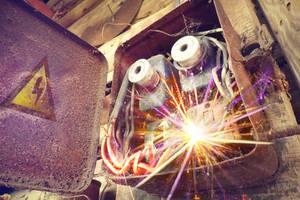Recent Blog Posts
What Expenses Should Workers' Compensation Cover?
 No one wants to end up in a position where they need to rely on Workers’ Compensation. You would almost certainly prefer that the workplace accident or incident that left you injured had never happened. Being sidelined due to a workplace injury can bring a lot of new anxieties and struggles into your life. On top of trying to recover physically and emotionally, you are probably worried about recovering financially as well. The expenses associated with a workplace injury can add up very quickly when you stop to think about it. The good news here is that Workers’ Compensation should cover most if not all of your expenses related to the accident - including future costs you may not even be thinking about yet. A Workers’ Compensation attorney can help you come up with a complete list of your accident-related costs that could be compensable.
No one wants to end up in a position where they need to rely on Workers’ Compensation. You would almost certainly prefer that the workplace accident or incident that left you injured had never happened. Being sidelined due to a workplace injury can bring a lot of new anxieties and struggles into your life. On top of trying to recover physically and emotionally, you are probably worried about recovering financially as well. The expenses associated with a workplace injury can add up very quickly when you stop to think about it. The good news here is that Workers’ Compensation should cover most if not all of your expenses related to the accident - including future costs you may not even be thinking about yet. A Workers’ Compensation attorney can help you come up with a complete list of your accident-related costs that could be compensable.
Compensable Expenses After a Workplace Accident
5 Steps to Take Quickly After a Workplace Injury
 Workplace accidents can happen when you least expect them. What starts out as a perfectly normal day at work can end in a disaster. Whether your job is largely considered “dangerous,” like types of construction work, or mostly safe, like retail work, the fact is that a workplace injury can happen to anyone. Even people with desk jobs have been injured at work. This is why it is so important for everyone to know exactly how to respond just in case it does happen to you. The way you handle the situation as it unfolds can be extremely important later. Making a mistake could harm your case when it comes time to seek compensation, while handling everything correctly could make it much more difficult for your employer to deny your claim. One of the most important things you can possibly do after a workplace injury is to contact an attorney who can offer you further guidance.
Workplace accidents can happen when you least expect them. What starts out as a perfectly normal day at work can end in a disaster. Whether your job is largely considered “dangerous,” like types of construction work, or mostly safe, like retail work, the fact is that a workplace injury can happen to anyone. Even people with desk jobs have been injured at work. This is why it is so important for everyone to know exactly how to respond just in case it does happen to you. The way you handle the situation as it unfolds can be extremely important later. Making a mistake could harm your case when it comes time to seek compensation, while handling everything correctly could make it much more difficult for your employer to deny your claim. One of the most important things you can possibly do after a workplace injury is to contact an attorney who can offer you further guidance.
UPDATE: Can I Get Workers’ Compensation for PTSD and other Psychological Injuries?

Originally published: March 31, 2021 -- Updated: April 27, 2022
UPDATE: In cases where workers experience mental disorders, they may struggle to perform work and meet all the requirements of employment. Because of this, they may experience negative consequences, and they could even lose their jobs. However, California law allows workers to pursue workers’ compensation claims in these situations even after the termination of employment, as long as the circumstances that led to the injury occurred before the termination took place.
By receiving workers’ comp benefits, a person who struggles with PTSD or other mental health issues may be able to receive the necessary treatment, which would likely have been difficult following the loss of their job. To demonstrate that they qualify for workers’ comp, a person will need to show that their psychiatric injury was predominantly caused by the actual events of their employment, and at least one of the following must be true:
How Do the Laws Protect Against Workers’ Compensation Discrimination?
 A workplace accident or injury can lead to multiple types of difficulties that may affect a victim’s personal and professional life. While workers’ compensation benefits will usually be available to anyone who has suffered a work-related injury, there are some situations where workers may be hesitant to pursue these benefits out of fear that they will face consequences at their job. However, worker’s are protected against workers’ compensation discrimination, and they should be sure to understand their rights in these cases. This can ensure that they will be able to receive the benefits they deserve while preventing their employer from taking illegal actions against them.
A workplace accident or injury can lead to multiple types of difficulties that may affect a victim’s personal and professional life. While workers’ compensation benefits will usually be available to anyone who has suffered a work-related injury, there are some situations where workers may be hesitant to pursue these benefits out of fear that they will face consequences at their job. However, worker’s are protected against workers’ compensation discrimination, and they should be sure to understand their rights in these cases. This can ensure that they will be able to receive the benefits they deserve while preventing their employer from taking illegal actions against them.
What Is Workers’ Compensation Discrimination?
Every employee has the right to file a workers’ compensation claim and receive medical benefits, temporary or permanent disability benefits, or other applicable benefits following a work-related injury. It is illegal for an employer to penalize an employee for filing a workers’ comp claim, reporting a work injury, or otherwise asserting their rights.
How Can an Injured Worker Address Willful Misconduct by an Employer?
 When a person is injured in a workplace accident or experiences injuries, illnesses, or other health issues that arose out of the work they had performed, they will usually be able to receive workers’ compensation benefits. Most of the time, these benefits will be available no matter who was responsible for an injury. An employee will not need to show that their employer acted negligently or otherwise caused them to suffer harm, and as long as they can show that their injuries were work-related, they will be able to receive medical benefits and temporary or permanent disability benefits. However, there are some situations where an employee may be able to receive additional compensation if they can demonstrate that they were injured because of “serious and willful” misconduct by their employer.
When a person is injured in a workplace accident or experiences injuries, illnesses, or other health issues that arose out of the work they had performed, they will usually be able to receive workers’ compensation benefits. Most of the time, these benefits will be available no matter who was responsible for an injury. An employee will not need to show that their employer acted negligently or otherwise caused them to suffer harm, and as long as they can show that their injuries were work-related, they will be able to receive medical benefits and temporary or permanent disability benefits. However, there are some situations where an employee may be able to receive additional compensation if they can demonstrate that they were injured because of “serious and willful” misconduct by their employer.
What Types of Injuries Do and Do Not Qualify for Workers’ Comp?

For people who are injured while at work, workers’ compensation can provide them with benefits that address the effects of their injuries. To ensure that they will be able to make a full recovery, medical benefits will fully cover all expenses related to the treatment a person receives. If a person will miss work or lose income because of their injuries, they may qualify for temporary disability benefits while they are recovering, or they may receive permanent disability benefits to address an injury that will affect their ability to work and earn income in the future. While these benefits will be available for injuries that are considered to be work-related, some confusion may arise about whether a specific type of injury is covered by workers’ comp.
Common Workers Compensation Injuries for Truck and Delivery Drivers
 Truck drivers and delivery drivers are an increasingly important part of our economy. The volume of trucks on the road has been increasing in California and is projected to continue to grow. If you drive for a living or driving is part of your job, you know the risks you run every time you get behind the wheel. You can face danger not just from other vehicles on the road but also from the repetitive stresses of driving and from loading or unloading cargo.
Truck drivers and delivery drivers are an increasingly important part of our economy. The volume of trucks on the road has been increasing in California and is projected to continue to grow. If you drive for a living or driving is part of your job, you know the risks you run every time you get behind the wheel. You can face danger not just from other vehicles on the road but also from the repetitive stresses of driving and from loading or unloading cargo.
Types of Injuries Truck Drivers and Delivery Drivers Suffer
Traffic-related accidents account for most of the serious work-related injuries and deaths of truck drivers. If you are involved in a traffic accident, your injuries may have a wide range of severity, including:
-
Minor cuts and bruises
-
Fractures and serious sprains
How Are Permanent Disabilities Handled in California Workers’ Comp Cases?
 When a person suffers a work-related injury, they will usually be able to receive workers’ compensation benefits. Employers are required to maintain workers’ compensation insurance, and their policies provide coverage for all employees who are injured in workplace accidents or for other reasons that are related to the work they have performed. Workers’ comp provides multiple types of benefits, including medical benefits that pay for all treatment a person receives following an injury, as well as disability benefits that address their loss of income. In many cases, disability benefits are temporary, and they will allow a person to continue receiving pay while they are recovering from their injuries. However, in cases where injuries will affect a person for the rest of their life, permanent disability benefits may be paid.
When a person suffers a work-related injury, they will usually be able to receive workers’ compensation benefits. Employers are required to maintain workers’ compensation insurance, and their policies provide coverage for all employees who are injured in workplace accidents or for other reasons that are related to the work they have performed. Workers’ comp provides multiple types of benefits, including medical benefits that pay for all treatment a person receives following an injury, as well as disability benefits that address their loss of income. In many cases, disability benefits are temporary, and they will allow a person to continue receiving pay while they are recovering from their injuries. However, in cases where injuries will affect a person for the rest of their life, permanent disability benefits may be paid.
Types of Injuries That Can Occur in Workplace Slip and Fall Accidents
 There are many different types of accidents that may happen in the workplace, and in these situations, workers will need to understand their rights and options. Slip and fall accidents are among the most common causes of work-related injuries. Even though these may seem like minor incidents that will not result in long-lasting harm, they can cause a variety of injuries that may affect a person in the days and weeks following an accident. In some cases, they can result in ongoing health issues or permanent disabilities. Workers who are injured in fall accidents will need to understand the types of workers’ compensation benefits they can receive to address the effects of their injuries.
There are many different types of accidents that may happen in the workplace, and in these situations, workers will need to understand their rights and options. Slip and fall accidents are among the most common causes of work-related injuries. Even though these may seem like minor incidents that will not result in long-lasting harm, they can cause a variety of injuries that may affect a person in the days and weeks following an accident. In some cases, they can result in ongoing health issues or permanent disabilities. Workers who are injured in fall accidents will need to understand the types of workers’ compensation benefits they can receive to address the effects of their injuries.
Common Slip and Fall Injuries
There are many reasons why slip and fall accidents may occur, including wet floors, damaged sidewalks, potholes in parking lots, or tripping hazards such as torn carpets or extension cords in an office or other locations. A person who slips and falls may experience injuries such as:
What Are My Options if I Am Injured at Work by Faulty Equipment?
 There are many reasons why work injuries occur. While some injuries may be the fault of an employee who did not follow the correct safety practices, many are caused by the negligence of other parties. In some cases, an employer may fail to provide employees with the proper safety equipment or training, or they may fail to ensure that equipment is properly maintained. Equipment-related injuries may also occur due to design or manufacturing defects. Fortunately for people who are injured by faulty or defective equipment while on the job, workers’ compensation benefits will usually be available to address their medical expenses and any temporary or permanent disabilities. By understanding the types of equipment-related injuries that can occur and the steps they can take following an injury, a person can make sure they will be able to receive the benefits they deserve.
There are many reasons why work injuries occur. While some injuries may be the fault of an employee who did not follow the correct safety practices, many are caused by the negligence of other parties. In some cases, an employer may fail to provide employees with the proper safety equipment or training, or they may fail to ensure that equipment is properly maintained. Equipment-related injuries may also occur due to design or manufacturing defects. Fortunately for people who are injured by faulty or defective equipment while on the job, workers’ compensation benefits will usually be available to address their medical expenses and any temporary or permanent disabilities. By understanding the types of equipment-related injuries that can occur and the steps they can take following an injury, a person can make sure they will be able to receive the benefits they deserve.








